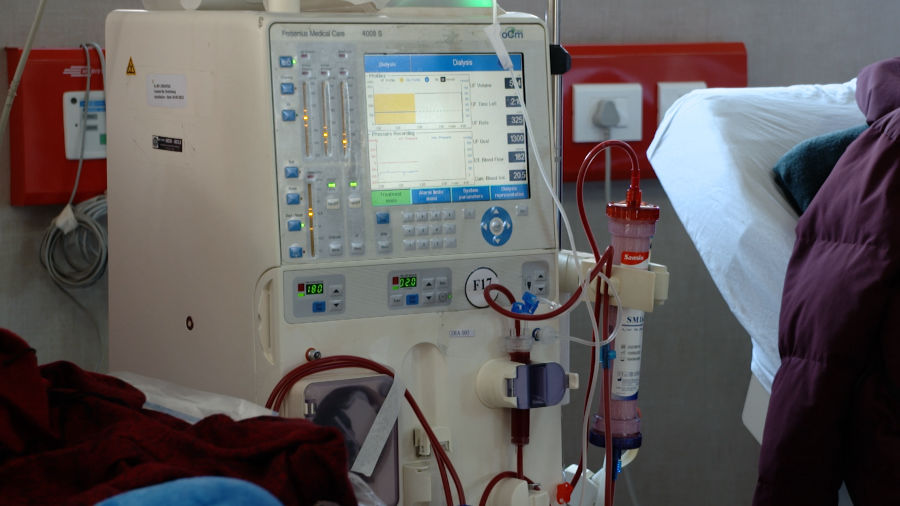
In response to growing concerns over limited access to dialysis treatment across the country, the health ministry has announced plans to expand its services. The health minister shared this during the question hour session in the National Assembly yesterday, where MPs raised concerns about the lack of accessible dialysis centres. Dialysis is a treatment that filters and purifies the blood using a machine when the kidneys are not able to.
Currently, there are only seven dialysis centres in the country, located in Thimphu, Gelephu, Paro, Wangdue, Samtse, Phuentshogling, and Monggar.
Yet, kidney disease is prevalent almost across the country.
The health minister said more than 420 patients are currently receiving haemodialysis in Bhutan, with nearly 220 patients treated at the national referral hospital.
Of these, nearly half are from eastern districts.
Pema Gatshel’s Nanong-Shumar MP said when patients have to travel far from their homes, they face numerous challenges including travel, food, and lodging costs.
Yeshey Jamtsho, the MP said “If we look at their situation, they are often forced to leave their homes locked and unattended just to access dialysis services at centres far from home.”
To address such challenges, the health minister shared plans to establish a dialysis centre in Trashigang.
Health Minister Tandin Wangchuk said “As part of the plan, we will establish dialysis services for the eastern districts of Trashi Yangtse, Pema Gatshel, Samdrup Jongkhar, and Trashigang at Trashigang Hospital. The work will begin within this fiscal year. Although Trashigang has a large population, the hospital area is still small and has not yet been expanded. We have allocated 350 million ngultrum for this project.”
The ministry also plans to introduce at-home treatment option, especially for rural patients, called peritoneal dialysis services.
“For this service, the patient will undergo a minor surgery to place a device in the abdomen. The treatment works by regularly changing a fluid. It will be especially beneficial for patients living in rural areas.”
However, the MP from Shompangkha shared concerns about the risks associated with home-based treatment.
Dr Tek Bahadur Rai, MP, Shompangkha said “In my experience, people in rural areas face challenges with peritoneal dialysis. The tubes often get blocked, and infections such as sepsis are quite common. Proper research is needed before we proceed with its implementation.”
In response, the health minister admitted that infections are possible but reassured medical services in early detection and treatment.
As the debate goes on, patients are waiting, not just for treatment, but for the day when their healthcare journey is easier, accessible and convenient.
Namgay Dema
Edited by Tshering Zam








